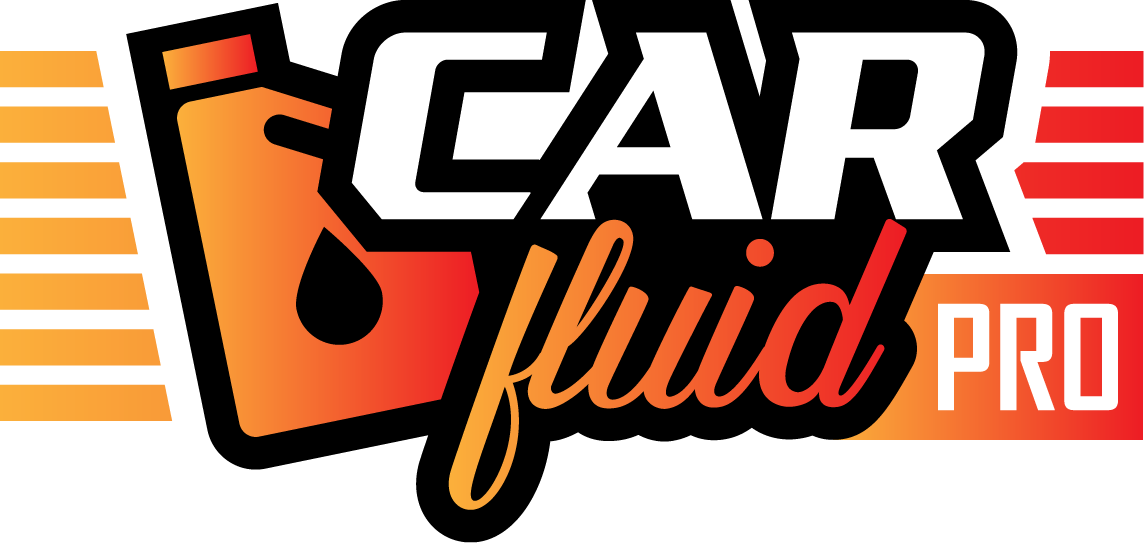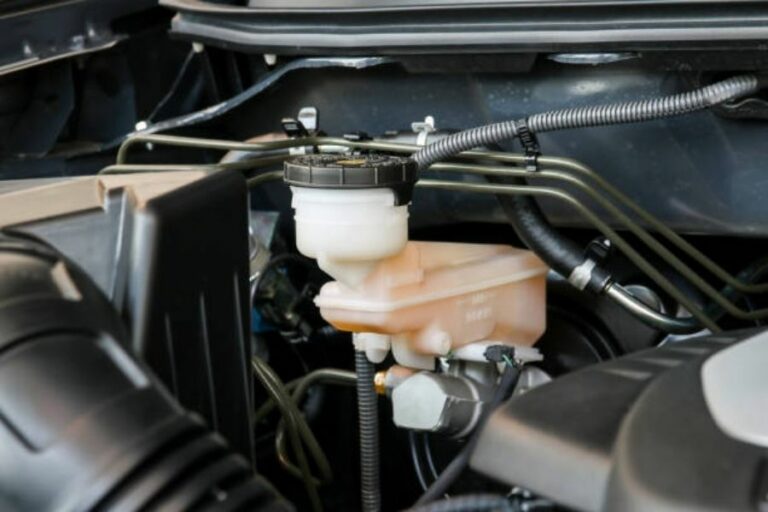Mercon V Vs Mercon LV Transmission Fluid? Know Which is Best
The proper transmission fluid for your car engine sets the tone for the car to run smoothly and swiftly. For Ford vehicles, the Mercon transmission fluids are exclusive options. But if you have to choose between Mercon V vs Mercon LV, you must know what sets them apart.
The core difference between Mercon V and LV is in viscosity. In the case of Mercon V, the viscosity has a higher index, and Mercon LV comes with a lower index.
Well this is just one point of difference, this article will cover a detailed comparison between Mercon lv vs v. Stay tuned with us right to the end of this article.
Overview of Mercon V Transmission Fluid
Mercon V is an automatic transmission fluid that protects against wearing, oxidation, and shuddering. It is mainly possible due to the presence of some tighter specifications.
The fluid provides excellent protection against any kind of deposits. In addition, the chances of rust formation or corrosion are almost zero.
The best part of this ATF is that it comes with higher viscosity with thinner density. Also, the fluid enables much smoother shifting of the gears than regular engine oils.
With such traits, the fluid will not be much bothered by the changes in engine temperatures. That said, Mercon V’s effectiveness will be much better in colder climates due to such characteristics.
As for performance, this fluid is best suited for electronically controlled modules. Moreover, the compatibility with all the Ford models introduced after 2008 makes it an excellent option to rely on.
Good Sides
- Higher viscosity
- You can use it on a wide range of ford vehicles
- Good output in the colder climates
- The anti-shudder characteristics help to keep the engine clean
Bad Sides
- It can be a bit costly
Read Also: What Transmission Fluid Is Equivalent To Mercon LV?
Overview of Mercon LV Transmission Fluid
The Mercon LV is another transmission fluid with much lower viscosity. It comes with the unique characteristic of ensuring the lowest possible friction. As a result, the engine can run smoothly and cope with instant heat.
It is a premium transmission oil that is hydro-processed for superior engine performance. Including performance additives in its mixture plays a big part in generating such outcomes.
That said, the fluid works decently in high and low temperatures when it is concerned with gear shifting. The shifting characteristics that this transmission fluid provides are one of a kind. Besides, you can remain tension-free as the liquid can work well, opposing any transmission shudders.
Gum, foam, or sludge formation won’t be a thing as there are counter properties in the fluid composition. The similar goes for rust or corrosion formation.
If there is a leakage, this fluid will help you quickly identify it as dyed red. Moreover, you can only use the Mercon LV on Ford, Mercury, and Lincoln vehicles.
Good Sides
- Properties against gum, shudder, foam, rust, and sludge formation
- Ensure smooth transmission of gears in varying temperatures
- Enhances the engine performance
- Budget-friendly
Bad Sides
- Only suited to the latest Ford models
Is Mercon lv the same as Mercon v?
No, Mercon LV is not the same as Mercon V. Mercon LV is a synthetic automatic transmission fluid (ATF) that was developed by Ford Motor Company in 2006. It is designed for newer Ford vehicles that have electronically controlled transmissions. Mercon V is a conventional ATF that was developed in 1997. It is designed for older Ford vehicles that have hydraulically controlled transmissions.
Mercon V vs Mercon LV Transmission Fluid: Quick Comparison Table
Before choosing the right option between Mercon lv vs Mercon v, you need to have a fair idea about how those oils fare in comparison to the other. Look at the table below if you don’t have much time.
| Factors | Mercon V | Mercon LV |
| Viscosity | Higher Index | Lower Index |
| Oxidation Resistance | Higher | Higher |
| Weather Compatibility | Performs well in all weather | Good for withstanding insane heat |
| Protection from deposits | Higher | Higher |
| Base | Synthetic ATF | Synthetic ATF |
| Anti-Foam Additives | Yes | Yes |
| Shifting | Moderate | Higher |
| Anti-shudder protection | Higher | Higher |
| Compatibility | All ford vehicles after 2008 | Latest Ford, Mercury, and Lincoln vehicles |
Read Also: Mercon Sp Vs Lv: Which Transmission Fluid Should You Use?
Mercon V and Mercon LV: 6 Key Differences
Both these transmission fluids have a share of their similarities and dissimilarities. But before buying, you should know what sets them apart. Below are some factors that will help you understand them better:
1. Viscosity
The prime difference between Mercon V and Mercon LV is viscosity. It is the element in the fluid that refers to the flow resistance. That means, if the viscosity of the transmission fluid is higher, the fluid flow will be less smooth.
Between the Mercon V and Mercon LV, the Mercon V has a higher viscosity index. Though it performs well in every temperature, liquid with such viscosity tends to get unstable and cause friction.
On the other hand, Mercon LV comes with a lower index than Mercon V. It comes with a viscosity index of 155, which is lower than the 205 of Mercon V. It eventually results in the engine facing lower frictions while in operative mode.
2. Flash Point
There are often instances when the transmission fluid may cause a fire in the engine. In such scenarios, the flash point of the liquid is crucial.
The flash point is the limit in temperatures, which can trigger ignition. Almost all types of engine fuels come with a particular flash point. That said, between Mercon V and Mercon LV, the latter one has a higher flash point.
The Mercon LV comes with a flash point of 226°C (421°F), whereas the Mercon V comes with a flash point of 196°C (385°F). Therefore, the data suggest that Mercon LV is more flame resistant.
Read Also: 4 Best Mercon V Transmission Fluid Review & Guide In 2023
3. Specific Gravity
This factor in the transmission fluid mainly measures the density of the fluid versus water. Usually, the higher density liquids come with a specific gravity that is greater than 1 in comparison to the specific gravity of 1 in the case of water.
But for the Mercon V and LV, the specific gravity is below 1. The measure for Mercon V is 0.863; for Mercon LV, it’s a tad lesser, which is 0.842.
4. Fuel Compatibility
Both these transmission fuels have different additive features. That means the engine types suited for these fluids are also different.
Mercon LV is the latest version of transmission fluid, and it can’t be mixed with the previous oil types. It can cater well to ISO 46 hydraulic fuels.
However, Mercon V is catered to all fuels suitable for Ford automatic transmission. It doesn’t show incompatibilities with most oil types, including Dexron 111.
5. Usage Compatibility
For the Mercon V, all the Ford models in the market after 2008 are highly suited. In contrast, the newly introduced Mercon LV works well with the latest Ford models. Besides, Lincoln and Mercury vehicles also get along with Mercon LV.
6. Weather Compatibility
The Mercon V comes with a higher viscosity, which eventually means that it won’t disrupt any shifting in cold weather. A higher Index in the oil ensures that the flow isn’t that swift, which is required for colder temperatures.
However, liquids with lower viscosity fare well in hotter climates. That means the Mercon LV can withstand heat and ensure normal transmission for engine operations.
Read Also: What is Equivalent to Mercon SP Transmission Fluid?
Mercon LV vs Mercon V Transmission Fluid: Which one should you choose?
Not every oil type is suitable for all engines. It hugely depends on the features and characteristics of the engine itself. Despite belonging to the same line, there are distinctive properties between Mercon V and Mercon LV.
If you have to choose between them, certain factors should be considered. First is the weather where you will be driving your vehicle. Mercon V is well-suited to all climates, whereas the Mercon LV is more suited to hot weather.
The engine model also matters, as the Mercon LV is for the latest Ford, Mercury, and Lincoln vehicle only. After considering all the above aspects, you can choose either of the fluid types.
Can You Use Mercon LV Instead of Mercon V?
No, you cannot use Mercon LV instead of Mercon V. Mercon LV is a low-viscosity synthetic transmission fluid that is designed for newer Ford vehicles. Mercon V is a conventional transmission fluid that is designed for older Ford vehicles. Mercon LV is not compatible with Mercon V, and using it in a vehicle that requires Mercon V can cause transmission problems.
What Happens If You Mix Mercon V and Mercon LV?
Mercon V and Mercon LV are two different types of transmission fluid that are not compatible with each other. Mixing these two fluids can cause a number of problems, including:
- Slipping gears: Mercon LV is a thinner fluid than Mercon V, so mixing the two can reduce the friction between the gears and cause them to slip.
- Wear and tear: Using a mixture of Mercon V and Mercon LV can increase wear and tear on the transmission’s components.
- Shifting problems: Mercon LV may not be able to flow properly through the transmission’s hydraulic passages, which can lead to shifting problems.
- Overheating: Mercon LV is not as good at dissipating heat as Mercon V, so mixing the two can cause the transmission to overheat.
If you accidentally mix Mercon V and Mercon LV, it is important to have the transmission flushed and serviced as soon as possible. This will help to remove the mixture and prevent it from causing damage to the transmission.
It is important to note that even a small amount of Mercon LV can contaminate Mercon V and cause problems. Therefore, it is important to avoid mixing these two fluids at all costs.
FAQs
There may be many questions when deciding between the transmission fluids because Mercon V and Mercon LV are both available. We added some of the most asked questions for your convenience.
Is it alright to mix Mercon V and Mercon LV?
Mercon V and Mercon LV shouldn’t be integrated. Both fluids have varying viscosities, which might lead to complications that eventually affect the engine’s performance.
Why is Mercon LV incompatible with other Mercon fluids?
The Mercon LV is the special transmission fluid that works well with the latest ford models. It has a lower viscosity than most Mercon fluids, resulting in incompatibilities.






